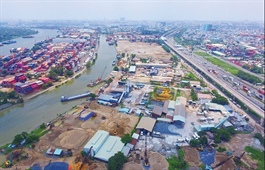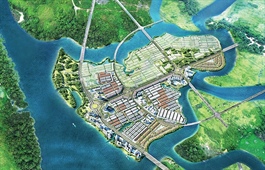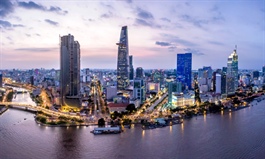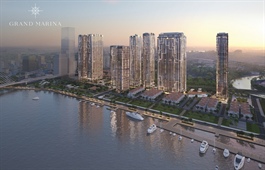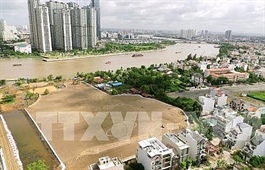Ho Chi Minh City urges on 32 long-delayed real estate projects
Ho Chi Minh City urges on 32 long-delayed real estate projects
At a recent meeting between Ho Chi Minh City People’s Committee and real estate developers, 32 long-delayed projects by 21 developers were discussed to bring about breakthroughs in development.

Ho Chi Minh City is the largest real estate market with hundreds of projects in delay
|
Projects from many giant developers were on the list, including Novaland Group, Him Lam Land, Quoc Cuong Gia Lai, SonKim Land, SaigonRes, and Hung Loc Phat which have been in a prolonged deadlock for various reasons.
Novaland had the largest number of projects under discussion by the central and local authorities, with 10 of the 32 projects bearing their logo. These projects include Co Giang apartment building in District 1, the officetel and apartment building at 151 Ben Van Don Street in District 4, a 30 hectare project in Binh Khanh commune of District 2, and seven other projects in Phu Nhuan district.
The Co Giang apartment building in District 1 was handed over land by Ho Chi Minh City People's Committee and the local Department of Construction has granted a construction licence for the project.
The officetel and apartment building at 151 Ben Van Don Street in District 4 has already been approved for land use right taxation.
In the 30ha project in Binh Khanh commune of District 2, legal procedures are being reviewed together with the larger project of Thu Thiem New Urban Area (where this project is located). At the same time, the local authorities are looking for solutions to help achieve a breakthrough at the project.
Seven other projects are being reviewed by local authorities.
Him Lam Land's Him Lam residential project in District 9 (Thu Duc City) and Saigonres' two projects were also on the agenda for having legal difficulties. Le Thanh Construction-Trading Co., Ltd. and Phu Long Real Estate Corporation have two projects each.
According to Le Hoang Chau, chairman of the Ho Chi Minh City Real Estate Association, the key problems of those projects are mainly related to the slow process of calculating land use rights. Because of this, developers cannot pay tax and be approved for construction and granting red books to buyers.
Representing the developers, Chau suggested Ho Chi Minh City People's Committee to issue guidelines to pave the way for projects which include public land. These projects have been delayed for a long time as they consist of small land plots under the management of the state and they cannot get the whole project cleared for construction.
“Local authorities should consider these projects case by case and submit their proposals to the committee to collect the public land plots and hand them over to developers,” Chau said.
Other solutions proposed included removing administrative procedures, setting out a priority list to grant red books to end-users as soon as possible.
He also suggested the committee to set up City Architect Consultant Bureau which can help solve prolonged delays.
The committee’s chairman Nguyen Thanh Phong assigned local authorities to submit a report on each project, talking with developers to ensure their projects can recommence at the soonest.







